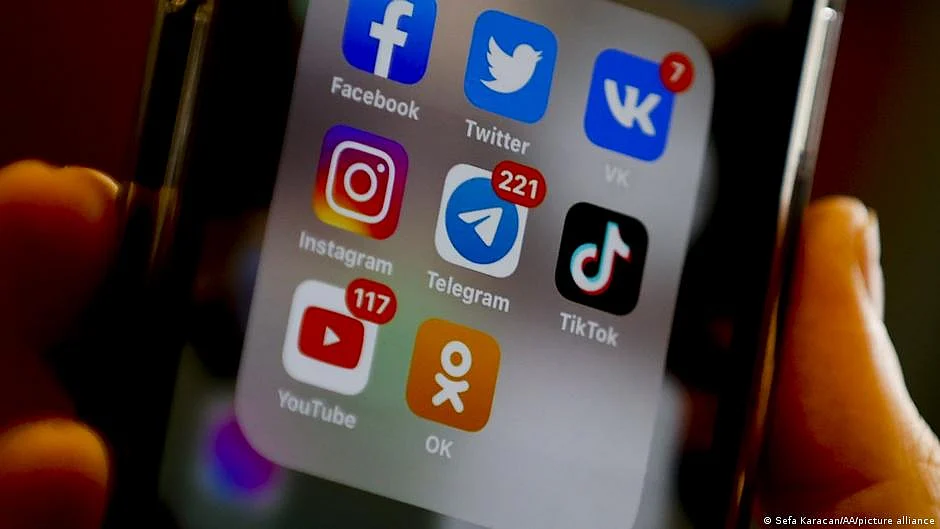Politics of Disinformation: Social media becoming an avenue for hate and bigotry
The report alleged that social media platforms have “sowed confusion in the minds of the people”, due to which polarisation and political alienation happens

A report released on the “Politics of Disinformation” by the Future of India Foundation (FoIF) highlights that palpable real-world harm is done by events or speech unfolding on social media, which is a cause of concern for citizens globally.
Ruchi Gupta, the co-founder and director of FoIF, said at a press conference in New Delhi’s Habitat Centre on Thursday, that while the younger generation enters and understands the public discourse and social issues through media, social media platforms today have taken away that space of engagement and education from them. She claimed that these platforms are increasingly becoming an avenue for hate and bigotry.
The report alleged that social media platforms have “sowed confusion in the minds of the people”, due to which polarisation and political alienation happens. The report said that while these platforms moderate and fact check only a sliver of the multitude of content that is published every day, they create a discourse around how taking action against objectionable content is also penalising free speech. The report says, “For Platforms, free speech is a business model.”
The report also highlights how the platforms position meticulously researched editorial pieces, and propaganda or personal opinions of people with considerable following as equal. Social media platforms also push information that gets the most engagement, even if it is vile or contains hate speech. Gupta worries that since credibility/accuracy is not a parameter when posting things online, and the fact that news (or information disguised as news) reaches the consumer directly and quickly, the distributor (social media platforms) becomes more important than the news itself.
What’s also harmful is that a lot of these social media platforms aren’t liable for what users post on them, they simply act as the host, as the free publisher. But the report points out that platforms are actually aware of activities being organised on the platform, and it is possible for them to moderate and keep a check, but it’s something they choose not to do. Gupta, while talking about this gave the example of Facebook, which has mentioned in its community guidelines that it doesn’t tolerate nudity on the platform, and has often gone to great extents to remove any and all explicit content. If it can be for one thing under the umbrella, why not the others?
In today’s world, where platforms are setting aside sizeable amounts for a creator economy, where they curate, amplify and commission content, they simply can’t label themselves as the host, brushing off all responsibility. They need to be held accountable as entities that’re slowly becoming the equivalent of media houses.
The report recommended that these platforms pick a distribution model, that then they’ll be held accountable for, apart from regulating these platforms by bringing them under parliamentary oversight.
Nikhil Dey, who works for the Mazdoor Kisan Shakti Sangathan and the NCPRI and was a panelist at this conference, emphasised how it is only the people and citizen movements or collectives that can actually raise their voice against this and bring about a change. When the report recommends a law that monitors these platforms, what Dey hopes for is not a law that only empowers the Parliament, but also the people. He is of the opinion that online content being consumed as news is harmful both for journalism and social media.
Apar Gupta from the Internet Freedom Foundation, agreed with Dey, while adding that they’re looking forward to a policy change that also bridges the gap between the civil society. Saurabh Sharma, the co-founder of FoIF, however said that the spread of misinformation is more evident in village youth, who do not have access to digital literacy.
Nitin Sethi and Kumar Sambhav from The Reporters Collective also talked about how journalists get both enabled and disabled by the nature of how these platforms work. Sambhav pointed out that social media has completely changed how the ethics of journalism would have worked in a traditional setup, especially considering how political all information on social media is.
Prashanto Sen, an advocate with the Supreme Court, also talked about how these social media platforms try to work across loopholes in different settings, citing the example of Facebook which labeled itself as a publisher in America, and as an intermediary in India, to take advantage of the legislation.
The report by the Future of India Foundation can be accessed here.
Follow us on: Facebook, Twitter, Google News, Instagram
Join our official telegram channel (@nationalherald) and stay updated with the latest headlines
